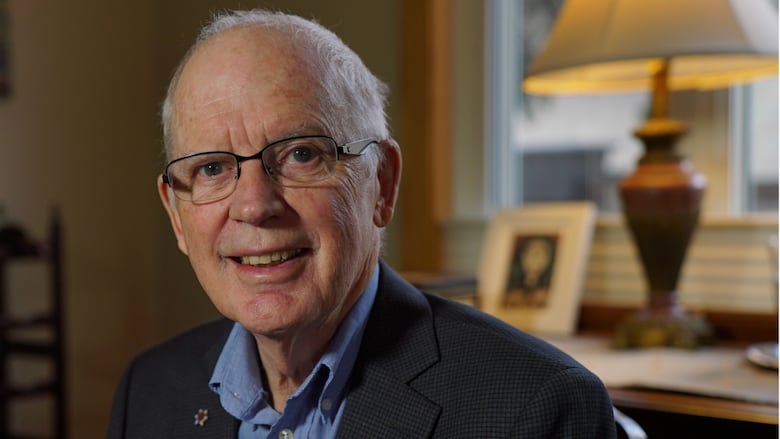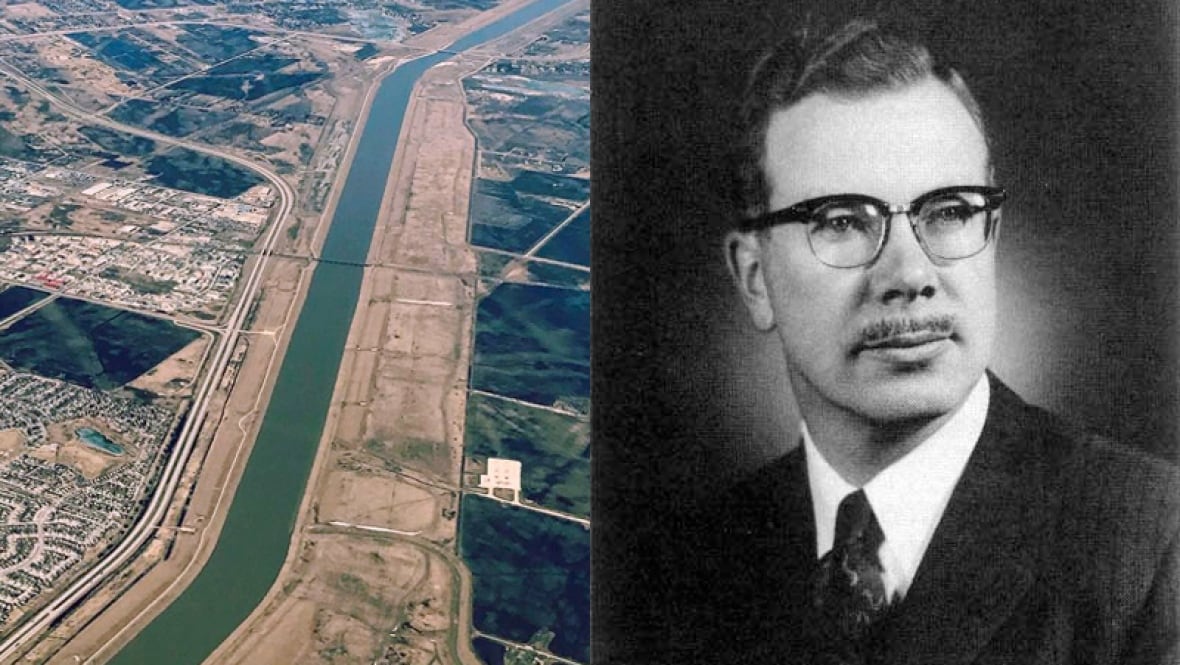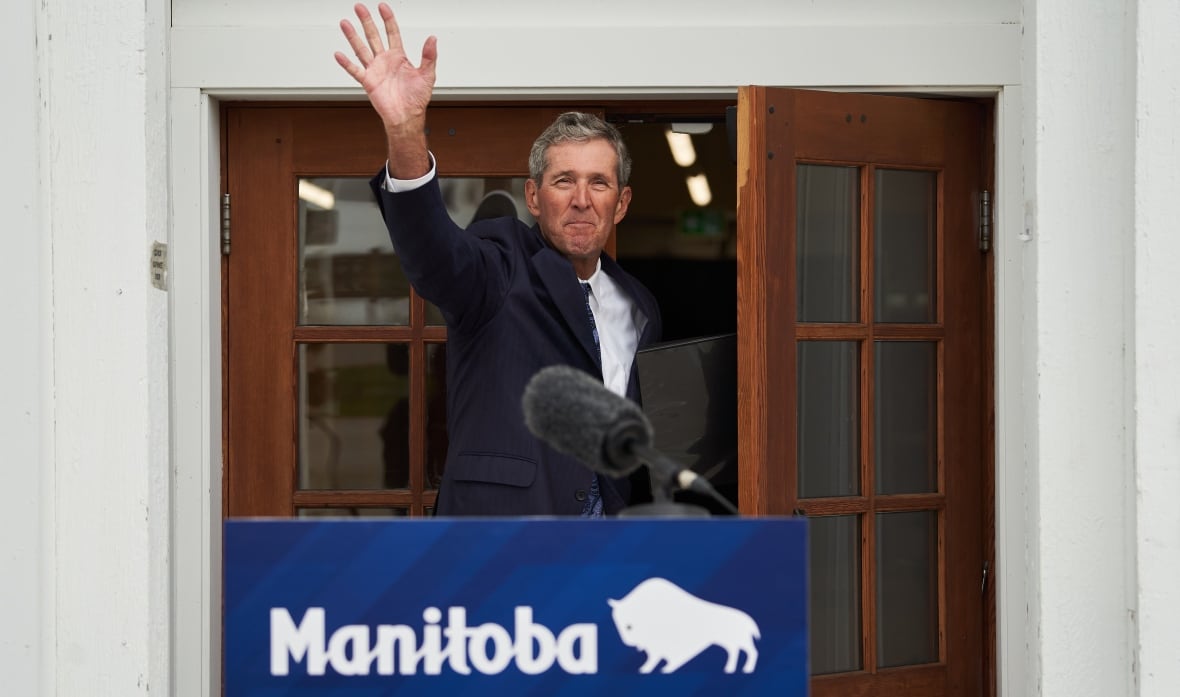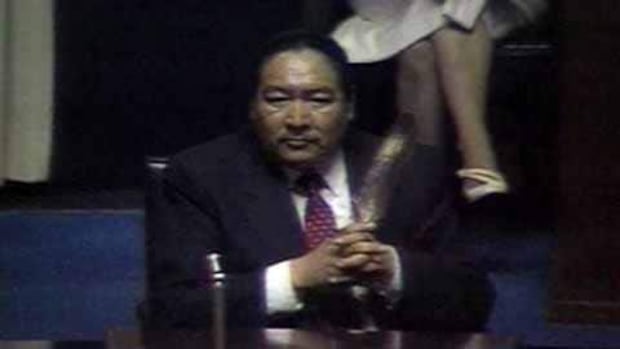Manitoba political commentator Paul Thomas to retire after more than 50 years of punditry
Thomas recounts the good, the bad and the ugly in an exit interview with CBC News

Longtime Manitoba political commentator and professor emeritus Paul Thomas is retiring.
Thomas, professor emeritus of political science at the University of Manitoba, announced his retirement in a final Winnipeg Free Press column earlier this month, saying his "days of punditry are over" and his future availability to the media will be "limited to topics of deep interest to me."
He's been the person to call with questions about Canadian politics for more than half a century, having spent decades observing and researching politics, offering his insights in countless media interviews.
Now, Thomas is recounting some of his standout political moments and opinions.
He says Manitoba's most memorable premier is Progressive Conservative Duff Roblin, "by miles."
"I know, in my opinion — having studied premiers from the past and having known all of them since the Duff Roblin era — that he was the best by far," Thomas told host Marcy Markusa in a Wednesday morning interview on CBC Manitoba's Information Radio.
LISTEN | Paul Thomas takes a walk down memory lane:

Roblin served as Manitoba's 14th premier, from 1958 to 1967, leading the charge to create the Red River Floodway around Winnipeg.
Before Roblin's election, the Manitoba government played a "very limited role" in the province, Thomas said, and the province was behind compared to some other jurisdictions in terms of education, social services and housing policy.
In contrast, Roblin led a "very active government," and he was willing to run up deficits and then raise taxes, Thomas said.
"It was sort of a quiet revolution, Manitoba style," he said. "He was very pragmatic. He wasn't a strongly ideological conservative, so that's why I have such great respect for him."
Manitoba's greatest premiers were those who took a more pragmatic approach, he said.

"Give me a government that's affordable and show me that the government works — that's the best approach that's prevailed in Manitoba [and has] led to the most success."
Conversely, Thomas said Manitoba's most polarizing premier was Progressive Conservative Brian Pallister, who served as the province's 22nd premier from 2016 to 2021.
He described Pallister as "the most ideological" of Manitoba's premiers. Pallister was so committed to an agenda of limited government, lower taxes, deregulation and privatization that Thomas said he "antagonized a lot of people."
"Manitobans want good government and they want affordable government, but they believe that there's a positive role for government," Thomas said.
"He seemed to bring the view that government was a problem, and he got caught by the pandemic and the economic slowdown at a time when he was trying to curb spending."
Pallister stepped down as premier as party support plummeted in the polls, after widely condemned comments about Canada's history and colonization. His decisions as leader during the COVID-19 pandemic and plans to eliminate school boards also brought criticism.
Regardless of political stripe, Thomas said he's proud to have served as a nonpartisan "sounding board" for Manitoba's premiers since the 1960s.
"Unfortunately today, people in public life don't get the respect they deserve, both on the political side, even on the administrative or public service side," he said.
"That's an unfortunate trend that's developed over my lifetime of commentary."
The most impactful political moment that he witnessed was Canada's Constitutional crises involving the Charlottetown and Meech Lake accords in the 1980s and 1990s.

The Meech Lake Accord — former prime minister Brian Mulroney's effort to bring Quebec into the Constitution by strengthening provincial powers and declaring Quebec a distinct society — was fiercely opposed by Indigenous leaders who said it ignored their rights.
In 1990, Manitoba Indigenous leader Elijah Harper, the only Indigenous Manitoba MLA at the time, withheld his consent for the Meech Lake Accord, preventing it from coming to a vote in the province and leading to the accord's eventual failure.
WATCH | Elijah Harper opposes Meech Lake Accord:
"Manitoba was at the centre of attention then," Thomas said.
Thomas described that period as a time of "high drama, lots of theatre" that occupied more television time than normal for Canadian politics.
"I remember my late mother-in-law … complained to me, 'Paul, why is Coronation Street not on CBC? Where did it go?'" Thomas said. "Well, we're trying to save the country."
A political moment that still causes Thomas to scratch his head was Manitoba's French-language crisis of 1983-84.
The province sparked protests when it said it would introduce legislation to give Franco-Manitobans the constitutional right to receive provincial government services in their own language.
That time sticks out in Thomas's memory as an "ugly period."
"That was a horrible moment in Manitoba history: high-emotion crowds, mobs … occupying the legislative building and screaming personal threats, targeted at both sides," Thomas said.
Tough assignments, proud achievements
A politician's duty is to "keep the temperature as low as possible," and to "strive for as much consensus as possible," he said.
"Increasingly, in this age of misinformation and disinformation, there's more of that going around. It spilled over from the United States, and it's disappointing [and] discouraging to me."
Thomas said one of his toughest assignments was as a consultant for a 1994 inquest led by then provincial court associate chief judge Murray Sinclair, after 12 infants died in one year during cardiac surgery at Winnipeg's Health Sciences Centre.
"That was a very emotional journey for me, dealing with the 12 families who had lost infants in the pediatric cardiac surgery program. I still have vivid memories of that to this day."
But a satisfying achievement for Thomas was success after advocating for a legislative internship program for a decade. The program, established in 1985, allows a group of recent university graduates to work in the legislature as research assistants.
"That's one of my proudest achievements."
With files from Chloe Friesen and Leif Larsen


